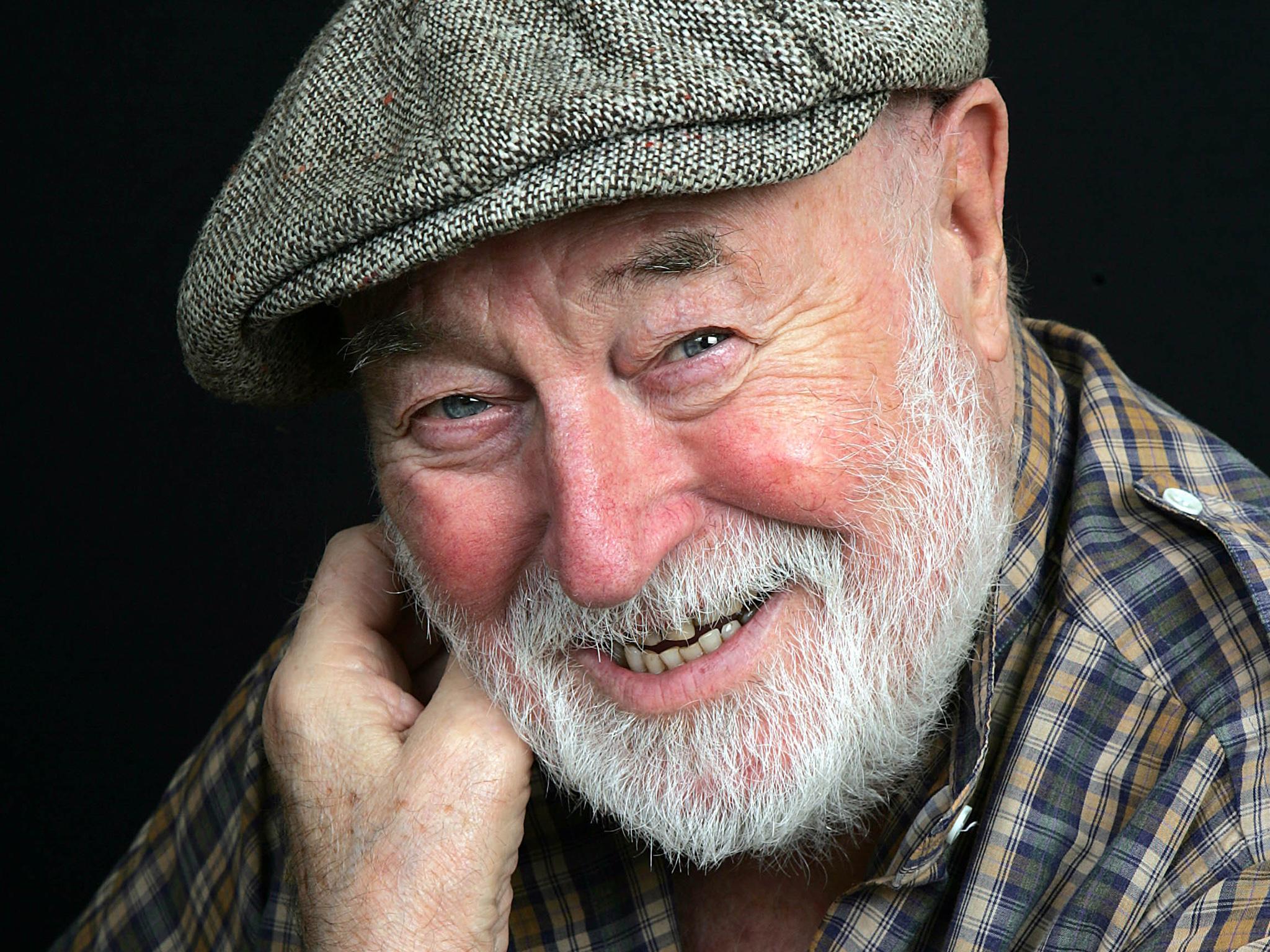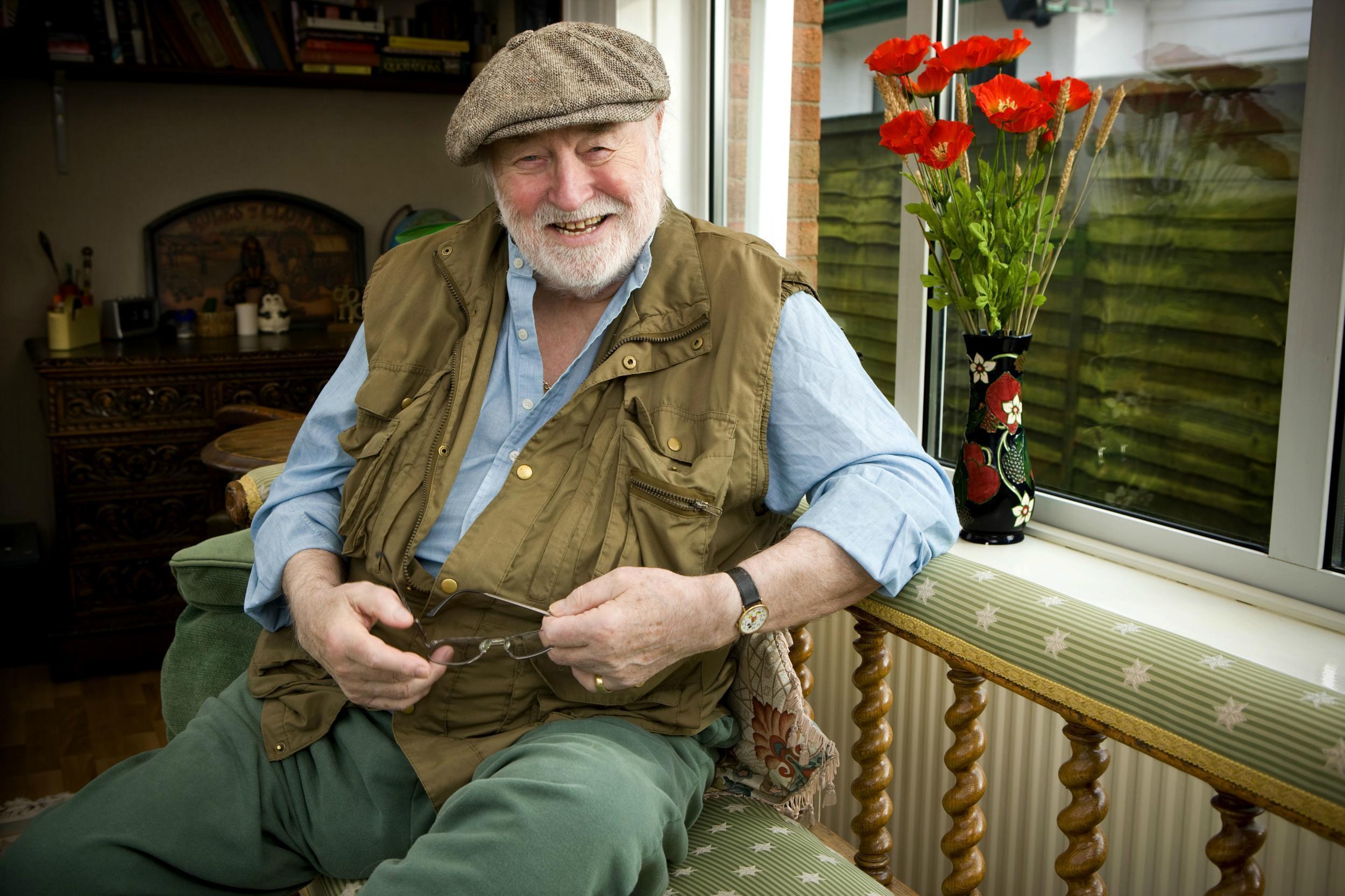Bill Maynard: Comedian turned actor who played Greengrass in ‘Heartbeat’ and appeared in Carry On films
With firms roots in the comic theatrical tradition of a bygone age, he became a household name in a host of TV dramas and comedy series

Your support helps us to tell the story
From reproductive rights to climate change to Big Tech, The Independent is on the ground when the story is developing. Whether it's investigating the financials of Elon Musk's pro-Trump PAC or producing our latest documentary, 'The A Word', which shines a light on the American women fighting for reproductive rights, we know how important it is to parse out the facts from the messaging.
At such a critical moment in US history, we need reporters on the ground. Your donation allows us to keep sending journalists to speak to both sides of the story.
The Independent is trusted by Americans across the entire political spectrum. And unlike many other quality news outlets, we choose not to lock Americans out of our reporting and analysis with paywalls. We believe quality journalism should be available to everyone, paid for by those who can afford it.
Your support makes all the difference.Bill Maynard was one of the first British stand-up comics to switch successfully to acting. After becoming one of Britain’s highest-paid stars as half of a comedy double act with Terry Scott, he took to the boards in repertory theatre before gaining his greatest fame on television in situation comedies such as Oh No It’s Selwyn Froggitt and The Gaffer, and playing lovable rogue Claude Jeremiah Greengrass in the popular Sixties-nostalgia drama series Heartbeat.
He also appeared in six of the later Carry On films. The transformation saw him change from thin young comic with close-cropped hair and large, floppy sweater to plump, balding, middle-aged actor.
Born Born Walter Frederick George Williams, in Farnham, Surrey, in 1928, the son of a soldier, he and his family moved to south-west Leicestershire when his father was posted there.
At the age of eight, he made his stage debut at the South Wigston Working Men’s Club, climbing on to the makeshift stage of a plank resting on two beer crates and singing: “Leaning on a Lamppost”. He soon became known as “Little Billy Williams, Leicester’s Own George Formby” and, by the age of 13, was earning more than his father, who by then had become a gardener to the Bishop of Leicester.
But, after years of performing in local clubs, the youngster turned his back on showbusiness and set his sights on a footballing career. He played for Kettering Town but had to give up the game after suffering a serious leg injury. Work followed as a salesman, buyer, coal-heaver and sales assistant in a Leicester department store.
After marrying Muriel Linnet in 1949, the showbusiness bug bit again and he appeared in talent shows for Bryan Michie and Carrol Levis, as well as in an Opportunity Knocks! stage production. His break came in 1951 with a season at Butlin’s holiday camp in Skegness, where he met fellow comedian Terry Scott. A year later, Maynard performed at London’s Windmill Theatre, in between the strippers, but he continued to work with Scott in a double act and they performed in variety all over Britain, Maynard acting the laidback foil to a frenetic Scott.
In 1953 he made his first TV appearance on the BBC show Face the Music.
Maynard and Scott became stars when the BBC gave the pair their own television show, Great Scott, It’s Maynard (1955), a sitcom in which their characters shared a flat. Maynard also had his own series, Mostly Maynard, but that proved less successful and his desire to switch to acting led to the break-up of the partnership with Scott.
Although he appeared in the West End play You Too Can Have a Body (Victoria Palace), most of Maynard’s acting was in repertory theatre, for weekly pay of just £50, a contrast to his stand-up comedy days, when he was one of Britain’s highest-paid performers, earning between £600 and £1,000 a week.
In 1962, a £17,000 tax demand from the Inland Revenue for back-tax owed meant that he had to sell three cars and his luxury house in Hampshire, take his two children away from private schools and move the family to a semi-detached house in the Leicestershire village of Sapcote, close to where he grew up.

To pay off his debts, Maynard also did three performances a day at the Nottingham Playhouse – as Frank Harris in The Bashful Genius in the mornings, Bottom in A Midsummer Night’s Dream at afternoon matinées and Fred Midway in Semi-Detached in the evenings – and a night-time cabaret act in Leeds.
Work in repertory theatre continued, but the once-famous comedian eventually faced the reality that he was a has-been. Planning to emigrate, he and his wife advertised in the International Herald Tribune that they were available for work in America as a butler and cook. On the day that the advertisement was published, Maynard was offered the role of Alf Garnett’s neighbour in the 1968 film version of Till Death Us Do Part.
Other big-screen roles followed, in The Magnificent Six 1/2 (1968), It All Goes to Show (1969), A Hole Lot of Trouble (1970), One More Time (1970) and The Four Dimensions of Greta (1971), and he was to be seen in six Carry On pictures. He also appeared in Coronation Street (1970) as song agent Mickie Malone, to whom Stan Ogden sold tunes that he had stolen from Ena Sharples.
But Maynard’s big break as a straight actor came with the role of the decaying journalist Clarence Hubbard in Dennis Potter’s 1971 BBC television play Paper Roses. With his potential spotted, he was cast as Zink, manager of a failing boxer, in the Thirty Minute Theatre presentation Psychological Warfare, Harry in Colin Welland’s Wednesday Play Kisses at Fifty (1973) and millionaire Sefton Garrett in the ITV series The Inheritors (1974), in which his character was seen battling with rival Elliott Morris (Philip Madoc). After playing Stan the Fryer at Birmingham Rep in Trinity Tales, Alan Plater’s bawdy comedy-parody updating of Chaucer’s Canterbury Tales, Maynard acted in the television version (both 1975).
His first starring role in a situation comedy since the Fifties was as widowed insurance agent Frank Riley in The Life of Riley (1975), but he gained his greatest fame in the title role in Oh No, It’s Selwyn Froggitt, Alan Plater’s series about a hopeless labourer in the public works department of a Yorkshire council who botches every job he takes on and lives for his evenings at Scarsdale Working Men’s Club, where he is secretary. A pilot episode in 1974 led to three series (1976-1977).
“The series is based on what I feel about working men’s clubs and it includes a lot of my own experiences,” said Maynard at the time. “They are marvellaous places for ordinary working people to go and have a cheap drink or a game of darts and skittles, but the way they are run by members’ committees has to be seen to be believed.” Selwyn’s catchphrase, “Magic!”, and double thumbs-up sign endeared him to millions of viewers.
In 1978, Maynard’s character was uprooted to an east coast resort to become entertainments manager at the Paradise Valley holiday camp.
In between, the actor starred in one series of the situation comedy Paradise Island (1977) as the Rev Alexander Goodwin, who finds himself marooned on a desert island with entertainments officer Cuthbert Fullworthy (William Franklyn) after a shipwreck. More successful was The Gaffer (1981-3), which ran for three series with Maynard playing Fred Moffat, the cunning managing director of a recession-hit light-engineering company.
After the death in 1983 of Muriel, his wife of 34 years, Maynard took a break from the small screen, although he appeared on the West End stage in Strippers (1985), Peter Terson’s play in which he acted the agent for a group of Geordie housewives who earned cash by taking their clothes off, and the acclaimed film Hear My Song (1991), about expatriate Irish tenor Josef Locke. He married the singer Tonia Bern, widow of world water speed ace Donald Campbell, in 1989.
In the Nineties, Maynard staged another comeback with the role of layabout Claude Jeremiah Greengrass, keeping one step ahead of the law in the long-running Heartbeat (1992-2010), set in Yorkshire during the 1960s and one of the most popular drama series of the decade. Ailing health caused him to be written out of Heartbeat in 2000.
His other films included Adolf Hitler – My Part in His Downfall (1972), Bless This House (1972), Steptoe and Son Ride Again (1973), Never Mind the Quality Feel the Width (1973), Man About the House (1974), Robin and Marian (1976) and four pictures in the Confessions sex comedy series (1974-1977). He also provided the voice of the Editor in The Plague Dogs (1982).
Maynard, whose son Martin entered showbusiness as actor and singer Maynard Williams, once stood against Labour MP Tony Benn in a Chesterfield by-election. He wrote two autobiographies, The Yo-Yo Man (1975) and Stand Up ... And Be Counted (1997).
Last year year he took a cameo role in BBC1 drama series The Moorside, putting paid to rumours that he had died.
In 2013 he celebrated 60 years in TV by releasing a single at the age of 84 – a cover of “What A Wonderful World”.
He told the Leicester Mercury: “I think, looking back over my career, a lot of the things I’ve done have either been brilliant or they’ve been crap. I made 31 films. Most of them were rubbish. There’s no point trying to put a gloss on it. They were. But the rest of my career – I’m proud of it.”
Bill Maynard, comedian and actor, born 8 October 1928, died 30 March 2018
Join our commenting forum
Join thought-provoking conversations, follow other Independent readers and see their replies
Comments